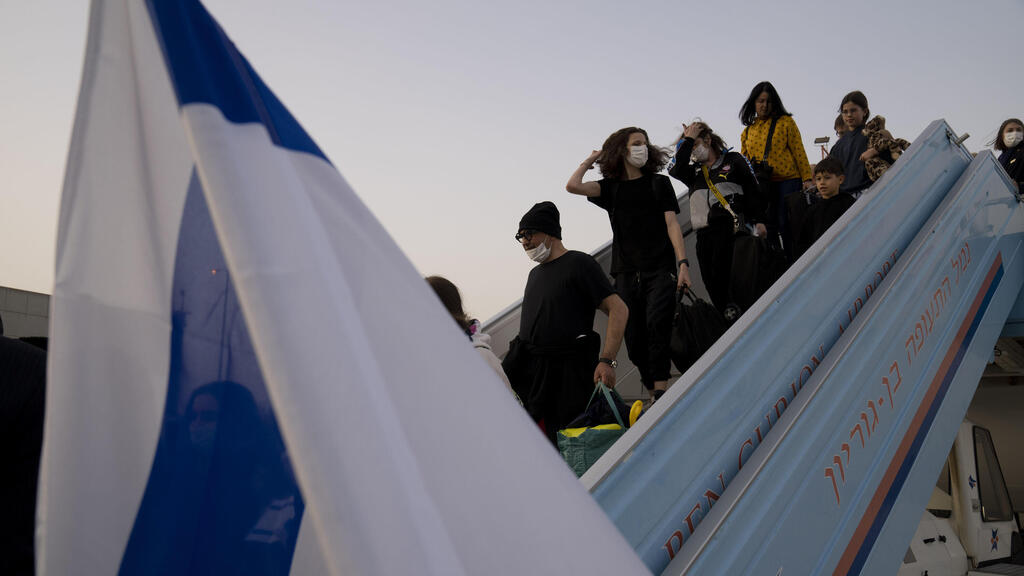Getting your Trinity Audio player ready...
Since the outbreak of the war, 30,763 immigration files have been opened worldwide for those seeking to immigrate to Israel, marking a 19% drop compared to the same period last year, according to data presented Sunday by the Knesset's Committee for Immigration, Absorption, and Diaspora Affairs.
In Russia, the decline in the number of Jews immigrating, was the sharpest, contrasted by a significant surge in immigrants from France.
The data shows that between October 2023 and September 2024, 13,203 immigration files were opened in Russia, reflecting a 45% decrease compared to the same period last year. In contrast, the United States saw 6,367 files opened, an increase of 60%. France experienced the most significant rise, with a 342% leap, totaling 5,657 opened files.
"The declared policy of the Minister of Aliyah and Integration has been to encourage immigration from Western countries and invest the funds there, neglecting the post-Soviet space, Oded Forer, chairman of the Immigration, Absorption, and Diaspora Affairs Committee, said. "Despite this declared policy, most immigrants in the past year, since the outbreak of war, have come from Russia, Ukraine, and Belarus. It’s unacceptable that people wait for months for an immigration interview to Israel. A Jew living in St. Petersburg is no less important than a Jew living in Paris."
"Our first task has been to reduce the long waiting times for immigration to Israel. We've implemented significant digitization to ease the immigration process," Deputy Minister Avi Maoz, speaking on behalf of the Prime Minister's Office, said.
"We are actively reaching out to those waiting in the post-Soviet space to expedite their appointments but are facing refusals due to the ongoing war in Israel. The work of Nativ (the government agency responsible for immigration from the former Soviet Union) is commendable, and we aim to shorten waiting times as much as possible. However, I believe it’s unrealistic to reduce the wait time to less than two months due to bureaucratic challenges."
Nativ (The Liaison Bureau) officials argue that the waiting time in Moscow is around three months, while in St. Petersburg, it stretches to about six months. They claim the shortened waiting times are not due to improved efficiency but rather a decline in demand for interviews because of the situation in Israel.
Alon Shoham, head of Nativ at the Prime Minister's Office, also addressed immigration from former Soviet states: "People want to ensure they’ve submitted all necessary documents, but the war in Israel is delaying their desire to schedule immigration dates.
People in Ukraine are becoming accustomed to the war with Russia. Those who wanted to immigrate have already done so, either to Israel or to Western Europe. More than 80% of immigration permits are granted after the first interview. Often, after uploading their documents, applicants are asked to refine them, which takes time. We are seeing a significant issue with falsified documents regarding Jewish identity. In the coming months, we expect the queues in St. Petersburg to shorten."
At the conclusion of the meeting, MK Forer said that he cannot accept that Jews must wait for months for an immigration interview. "I will appeal to the Foreign Minister and demand an amendment to Government Resolution 2070. There should be a consul in both Germany and the United States to assist local communities with immigration to Israel. The committee will also approach the Ministry of Education to address gaps in Hebrew language instruction before immigration."




